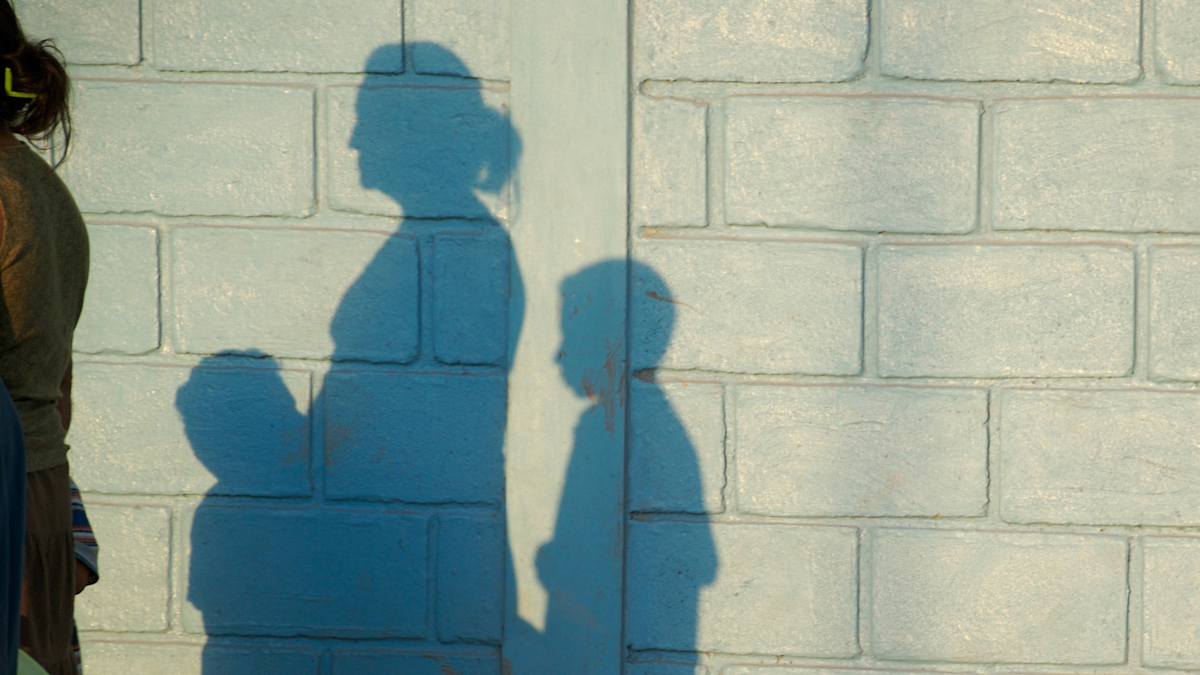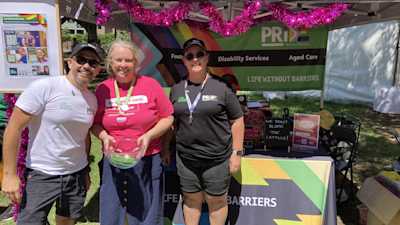Warning signs and support for victims of forced marriage.

Image: A young woman with short brown hair wearing a light pink jumper is looking down whilst another person speaks to her.
It’s not uncommon for people to confuse forced marriage and arranged marriage, but they are in fact, distinctly separate practices. While both involve family and community influence, there are critical differences that set them apart—differences that can significantly impact the lives of those involved.
This article explores the differences between forced and arranged marriage, highlights warning signs of a forced marriage, and provides information on support services available, including by Life Without Barriers.
Forced Marriage vs. Arranged Marriage
Arranged marriages are a long-standing cultural tradition in many societies, where families play a central role in introducing potential partners to their children. In an arranged marriage, the key distinction is that both individuals involved provide their full, free, and informed consent. Though families may introduce partners, individuals ultimately decide whether or not they want to marry, ensuring the marriage is based on mutual agreement and choice.
A forced marriage occurs when one or both parties are married without their full and free consent. Coercion, pressure, threats, manipulation, or even violence are often involved, making the marriage a violation of human rights. Victims of forced marriage can experience severe emotional, psychological, and physical abuse. While anyone can be affected, young women and girls are disproportionately vulnerable to this harmful practice.
The key difference between the two practices is consent. In a forced marriage, a person is either unwilling or unable to provide their full and free consent, typically due to fear, threat, or manipulation.
Your voice matters – your marriage is your decision.
Being forced to marry can impose immense emotional and psychological trauma on those affected and can leave people feeling trapped and powerless. As such, not only is forced marriage a violation of fundamental human rights, in Australia, it is recognised as a federal crime.
Alongside providing accessible support for victim-survivors to feel empowered to make choices for themselves, a key to prevention is raising community awareness of this complex, misunderstood and often hidden practice.
Warning Signs of a Forced Marriage
Anybody can be a victim of a forced marriage, regardless of their age, gender, sexual orientation or religious or cultural background. However, forced marriage tends to disproportionately affect young women and girls.
Recognising the signs of a forced marriage can be challenging, especially as stigma, shame, and cultural pressures often prevent victims from seeking help. However, there are key indicators that can help family, friends, and professionals identify potential cases of forced marriage:
Fear of family or community backlash: individuals may express fear or anxiety about their family or community's reaction to rejecting a marriage proposal.
Limited freedom and autonomy: individuals often have restricted freedom, with decisions about their lives (including their education, employment, or travel) being heavily controlled by family members.
Involuntary engagement or marriage: victims may express that they are being forced into an engagement or marriage, feeling unable to refuse without facing severe consequences.
Sudden or unplanned marriage: the marriage may be rushed or arranged under pressure, without the individual’s prior involvement or agreement.
Physical or emotional abuse: many individuals who experience forced marriage can suffer from violence, threats, or psychological abuse as coercion tactics.
Isolation: those in a forced marriage are often isolated from their peers or any support network, making it difficult for them to speak out or seek help.
Recognising these signs is critical in ensuring that victims of forced marriage receive the support they need.
Real and informed consent is a bedrock of Australian marriage law. Without it, a marriage is invalid and potentially, a crime.
Life Without Barriers: Providing Support for Victims of Forced Marriage
As part of the Federal Government’s initiative to combat modern slavery and violence against women and children, Life Without Barriers is now providing support via the Forced Marriage Specialist Support Program (FMSSP). This nationwide program provides tailored, trauma-informed support to people at risk of or affected by forced marriage, ensuring they can rebuild their lives in safety and freedom.
Panos Massouris, Director of Immigration Support Services, said Life Without Barriers is committed to “empowering victim-survivors of modern slavery to rebuild their lives.”
The support program provides comprehensive services that prioritise emotional and physical safety while offering pathways for long-term independence.

Image: The shawow of a mother and two children walking.
Life Without Barriers' Approach to Support
Our approach is built around a person-centred model that focuses on the individual’s unique needs. Some of the key services provided by Life Without Barriers include:
Holistic Care: Support services connect individuals to necessary legal advice, financial aid, and healthcare. The goal is to empower clients by strengthening their independence, health, and overall well-being.
Pathways to Independence: Life Without Barriers assists victims in accessing education, employment, and training opportunities to help them regain confidence and self-sufficiency.
Family Strengthening: Through culturally sensitive approaches, Life Without Barriers facilitates safer communication with family members and communities, aiming to promote healthier home environments and family relationships.
Re-connection: The program also helps individuals rebuild trust with their family, community, and religious groups if they choose to reconnect safely and on their terms.
This support network helps people regain control over their lives while prioritising their safety, well-being, and long-term recovery.
If you didn’t consent to your marriage, we’re here to help.
Get Support - Help is Here
Life Without Barriers is dedicated to providing discreet and accessible support to those in need. If you or someone you know is experiencing, or is at risk of experiencing, forced marriage, there are several ways to access support:
Call 1800 403 213 for a confidential conversation with a trained support worker.
Visit the Life Without Barriers forced marriage page to register for support and learn more about available resources.
National Help Lines: In case of immediate danger, contact the National Domestic Violence Helpline at 1800 737 732 or 1800RESPECT for text and online services.
Life Without Barriers is funded by the Department of Social Services to provide the Forced Marriage Specialist Support Program. Further information is available on the Department of Social Services website.

